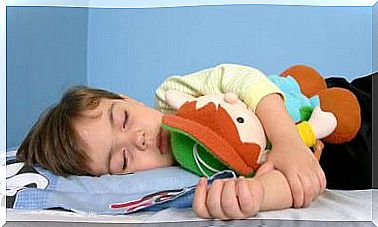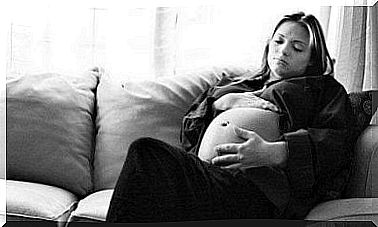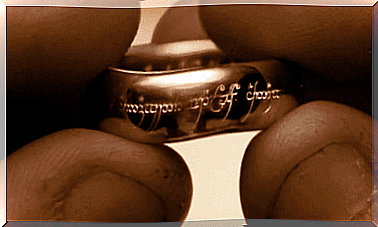How To Calm The Baby’s Hiccups? – Being Parents

The daily challenges are many for a woman when she gives birth to a child. Among them is that of calming the baby’s hiccups.
Baby hiccups are a very common disturbance in babies , especially newborns. In the first months of a child’s life, hiccups are very common; but its subsequent appearance does not necessarily indicate a significant health problem.
What are hiccups?
Hiccups are sudden, involuntary movement of the diaphragm; repeated at regular intervals. When a person hiccups, their lungs expel air violently and intermittently, making a characteristic sound.
What are the possible causes of hiccups in infants?
The most common reasons that hiccups occur in babies are:
1. A lack of development of the cardia
The digestive system, which is not yet fully developed, can be one of the causes of this discomfort. There is a valve called the cardia responsible for connecting the esophagus with the stomach. It may happen that it does not close completely due to a lack of development and then leads to the onset of hiccups.
It is very common during the first months of a baby’s life for this disturbance to occur for this reason. With the development and strengthening of the nervous and digestive systems, hiccups will gradually become a thing of the past.
2. Indigestion
When the baby’s stomach is very full, the diaphragm is compressed. Therefore, it is very likely that hiccups will appear.

3. Crying
During episodes of intense crying, the baby inhales excess air and at an accelerated rate to be able to manifest.
The hiccups can then appear after a crying attack, following the amount of air sucked in a short time. The same happens when the little one eats too quickly or regurgitates.
How to avoid hiccups in the baby?
By following these practical tips, you can prevent the baby from suffering from episodes of hiccups:
- Avoid sudden changes in temperature.
- Dry the infant well after bathing and avoid exposure to cold currents.
- Feed the baby only when he is completely calm.
- If your little one is crying and getting annoyed while eating, change positions frequently to calm down and burp.
- Do not give him a drink in the middle of a tearfulness. Reassure and soothe it before hydrating and nourishing it.
- Always check that he has gripped the nipple with his mouth.
- Choose the size of the nipple correct the bottle.
- Respect meal times .
“When a person hiccups, their lungs expel air violently and intermittently, producing a characteristic sound”.
How to calm the baby’s hiccups?
There are many myths and grandmother’s strategies for calming babies’ hiccups. Some of them are recommended and some are not; most important is knowing the options for dealing with this bothersome and intermittent disorder.
1. Massages
Hiccups can be uncomfortable for the baby and could cause worry or crying. If this situation presents itself with these mitigating circumstances, it is advisable to calm the baby so that he does not make any more sudden breaths of air.
A good session of gentle massages on the back and on the abdomen will help the infant to relax and, therefore, calm the hiccups.
2. Control the speed of food intake
It happens that the baby is annoyed to eat and manifests it in his attitude towards the bottle or within his mother. If the little one is having hiccups, it is best to take a break from food intake to help control it.
It is a good idea to take breaks between meals so that it can expel air. At least ten minutes should be devoted to it after the meal.

3. Water
If the baby is exclusively breastfeeding, he may be offered a few teaspoons of water slowly and lightly patting his back when he hiccups.
If the child is a little taller, these teaspoons can be with honey or sugar instead of water.
4. Find a better position for him
Holding the child in an upright position to promote burping will help calm hiccups. Likewise, making slight lateral movements to try to release the gas will be of great help.
Avoid at all costs blocking your child’s nose to force him to hold his breath and make the hiccups disappear. This practice, far from calming the baby’s hiccups, promotes despair and crying by making the situation worse.
As we’ve pointed out, there are some tips we’re used to hearing about stopping hiccups that do work. However, there are some which are unfounded and which we must avoid. In all cases, it is essential to be informed.









